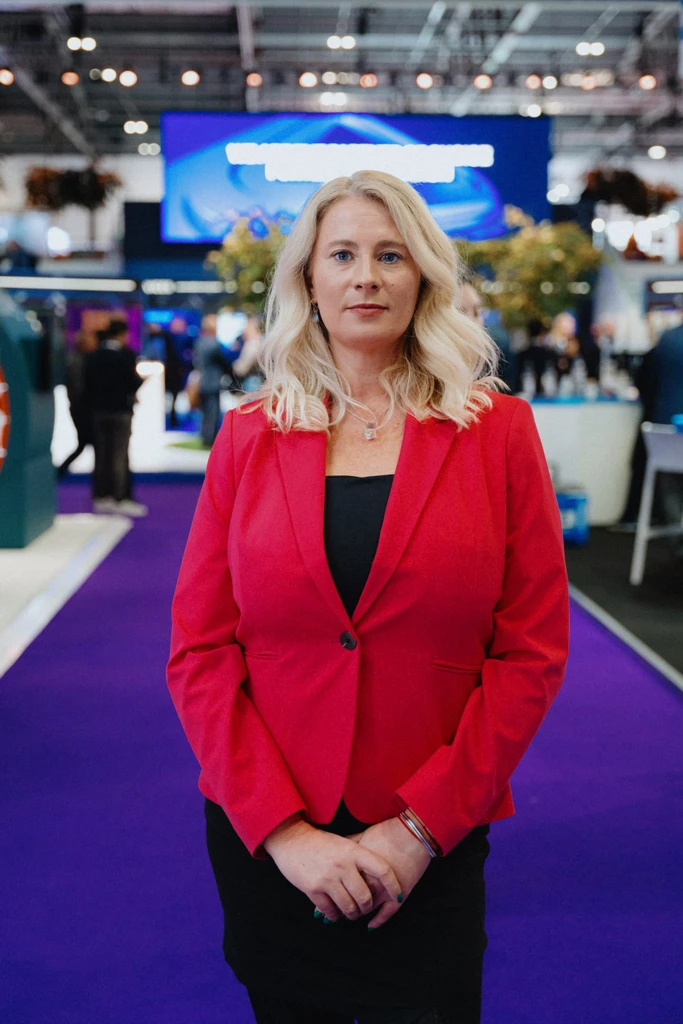Ebbe Groes is EveryMatrix’s co-founder and one of its many chief executives. “We have nine,” he says. “Me and eight others.”
Groes, of course, sits at the head of the table as group CEO. When EveryMatrix was a centralised platform business that meant he was the man in charge.
But that operating model is gone – EveryMatrix now functions as a series of independent business units. This means it spans everything from the core casino business to new verticals such as live dealer and lottery. Each has its own infrastructure and P&L and is at a different stage of growth.
The approach means Groes and his fellow CEOs can offer the sort of vertically integrated solutions others have tried and failed to build. In other examples from gaming, vertical integration tended to involve multiple products existing uneasily as part of a single unit. Say an online casino arm was struggling, for example, the channel-specific unit would drag down performance.
Groes’ approach with EveryMatrix essentially lets these businesses sink or swim as independent entities. They can operate independently, sell independently, but if the BU isn’t performing, EveryMatrix can kill it independently. All this comes without disrupting other units.
“It damn near killed us”
According to Groes, this modular model, which allows EveryMatrix to spin out a range of different vertical-specific businesses, is unique. However, that’s in part because it’s not easy to do.
To restructure EveryMatrix under this vertically integrated model, there were effectively two businesses. One working on developing a new infrastructure for the new model and one servicing the existing customer base.

“It is really quite tricky,” Groes says.
“You have to keep them happy and essentially run two development teams. One servicing the old product and platform, making sure you still make money and keep clients satisfied,” he explains.
“At the same time, you’re building something completely new. It was very complicated and it damn near killed us.”
Once the redevelopment was completed, though, the reward soon followed: EveryMatrix signed its first Tier-1 client in Norsk Tipping. “This of course was the entire ambition and very gratifying,” recalls Groes.
Structuring a decentralised EveryMatrix business

“Signature wins” such as Norsk Tipping, Groes says, validate the investment and work that goes into the different BUs’ efforts. The individual teams can build towards these deals with a huge deal of autonomy, EveryMatrix chief operating officer Alina Alexandru says.
“They own their products, with their dedicated people to deliver against their roadmap. That removes the long decision chain you go through in a normal IT organisation or software provider. This is where resources are harder to come by because everything reports into one person in the CTO.
Flexibility is built in, she explains, and it’s something gaming businesses need. “We have to change plans quickly. We have to adapt to regulatory frameworks, to new markets being open, or new markets growing or declining over time.
“This means we have to be able to make changes rapidly, adapt and be flexible. I see this organisational structure as allowing us to do that,” Alexandru adds.
But what role does a group COO play in a business with multiple management teams? In effect, as the point of connection between the different BUs, she says.
While each unit has the autonomy and resource to operate independently, Alexandru and other key group executives, such as chief architect Tim Walls, work across the functions. In Alexandru’s case that entails overseeing project management and processes.
Put simply, she’s the point of connection for projects involving multiple BUs, facilitating the strategic goals for more of Groes’ signature wins.
TippmixPro: Sportsbook’s signature win?
While OddsMatrix was the supplier’s first product, EveryMatrix is perhaps best known for its casino and games offering. The sportsbook offering went through a wholesale rebuild from 2018 onwards. Last year’s Tier-1 deals for the Hungarian national lottery’s TippmixPro and Betclic Everest Group’s Bet-at-home arguably provide the same validation as the Norsk Tipping agreement in 2016.

As head of sales for OddsMatrix, Ivan Rozic is tasked with taking the refreshed and renewed product offering and building a customer base. As a challenger to the established sportsbook providers, OddsMatrix is “trying to be as disruptive as possible and bring something to the table nobody else can provide” he explains.
Deals such as TippmixPro highlight the sort of partnerships Rozic seeks. “We’re looking for long-term partners, long-term commitments, relationships where we have a synergistic approach.
“We’re not going to be jumping at every single opportunity,” he continues, arguing the high-profile client wins and technology offering gives OddsMatrix that luxury.
Crucially, the decentralised structure means Rozic leads a dedicated sales team, which is highly educated about the products it sells.
“With other providers, you might have a single sales team covering all of the components, which often enough leads to conversations where you don’t have the answers right away,” he says. “I get feedback from companies that we’re talking to; some of them become our partners, some of them don’t. But everybody claims that they are very happy with the level of conversations that they have with our sales team because they can get the answers there and then.”
Under the BU structure, sales become product experts, he says, to really understand a client’s needs and the nature of the partnership and ultimately whether it’s a fit for OddsMatrix. “This is what’s going to drive us forward, being able to judge from both sides if this is a project we’re both willing to go in on and if it’s going to bring value for both sides involved.”
A concerted push into lottery
The fact EveryMatrix’s two signature wins for sports and casino were lottery operators makes that vertical a natural next business unit to build up. And, reflecting the approach of building around product experts, Nikolina Gabelica joined as head of lottery in January this year.
Gabelica is an established lottery professional. With more than 20 years at Croatia’s national lottery Hrvatska Lutrija in positions such as head of igaming, deputy director and most recently director of business development and marketing.

That B2C experience, she says, gives her an understanding of client needs that helps set the strategic direction for LotteryMatrix. “When you are a pure B2B provider and you don’t have experience of client operations, you lack understanding of the features, the ways of working and the client needs.”
That grounding in the vertical could be key, according to Groes. He sees LotteryMatrix as a potential disruptor to the sector’s biggest names such as IGT and Scientific Games. “That might be me being overconfident on the back of a very good year, but what we can see is this sector is underexposed to competition,” he says. “This is quite clear. The number of operators is not big enough and agile enough to incentivise newcomers in.
“[But] it’s only when we reached our current size that we can realistically say we can take on projects like this.”
Being unique at EveryMatrix
In a sector more traditional and less advanced in how products are marketed there’s more pressure to present something unique, exciting and modern, essentially similar to a casino operator. “[Lotteries] are not keeping up,” Groes says. “They know that very well; they’re not idiots.
“Unfortunately for them they just don’t have the products that allow them to compete.”
EveryMatrix’s decentralised structure comes into play again here. The strong performance of the other divisions such as casino provided the financial muscle to work on the lottery project. That also brought in the lottery client wins such as Norsk Tipping and Veikkaus. “[Then] we said, ‘well if I can handle five or six lotteries, why not also aim for the core product itself?’”
Lottery may be the next big launch, but with a live dealer product already in development, EveryMatrix is continually expanding and evolving. What succeeds becomes a new driver of growth. What fails is shut down with little damage or disruption to the wider business.
As many big businesses row back from a flurry of M&A in pursuit of a simpler business structure, the received wisdom is an end to vertical integration due to the challenges it brings. But EveryMatrix appears to have created a blueprint for tackling that sort of complexity.
Original article: https://igamingbusiness.com/strategy/everymatrix-navigating-vertical-integration-challenges/
















